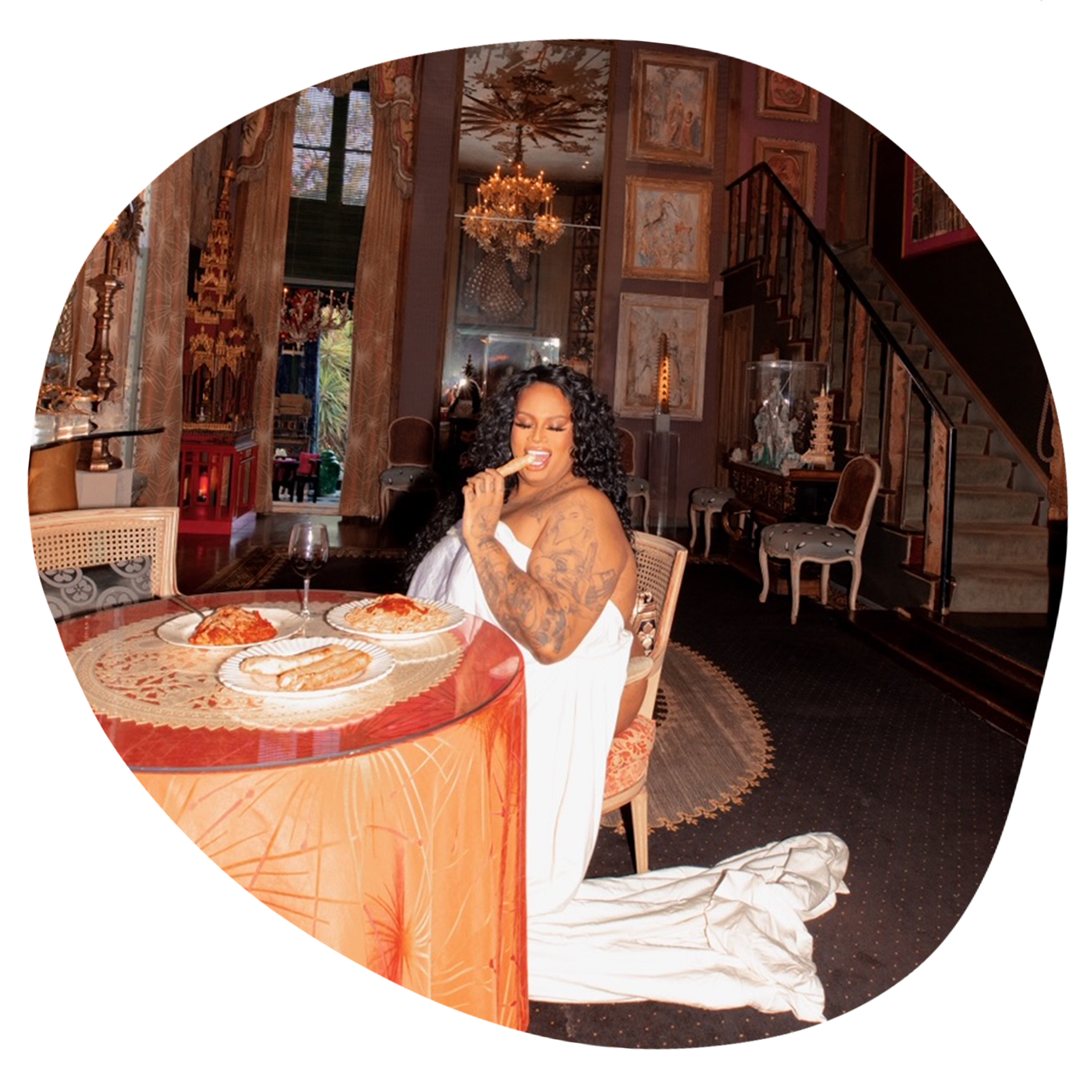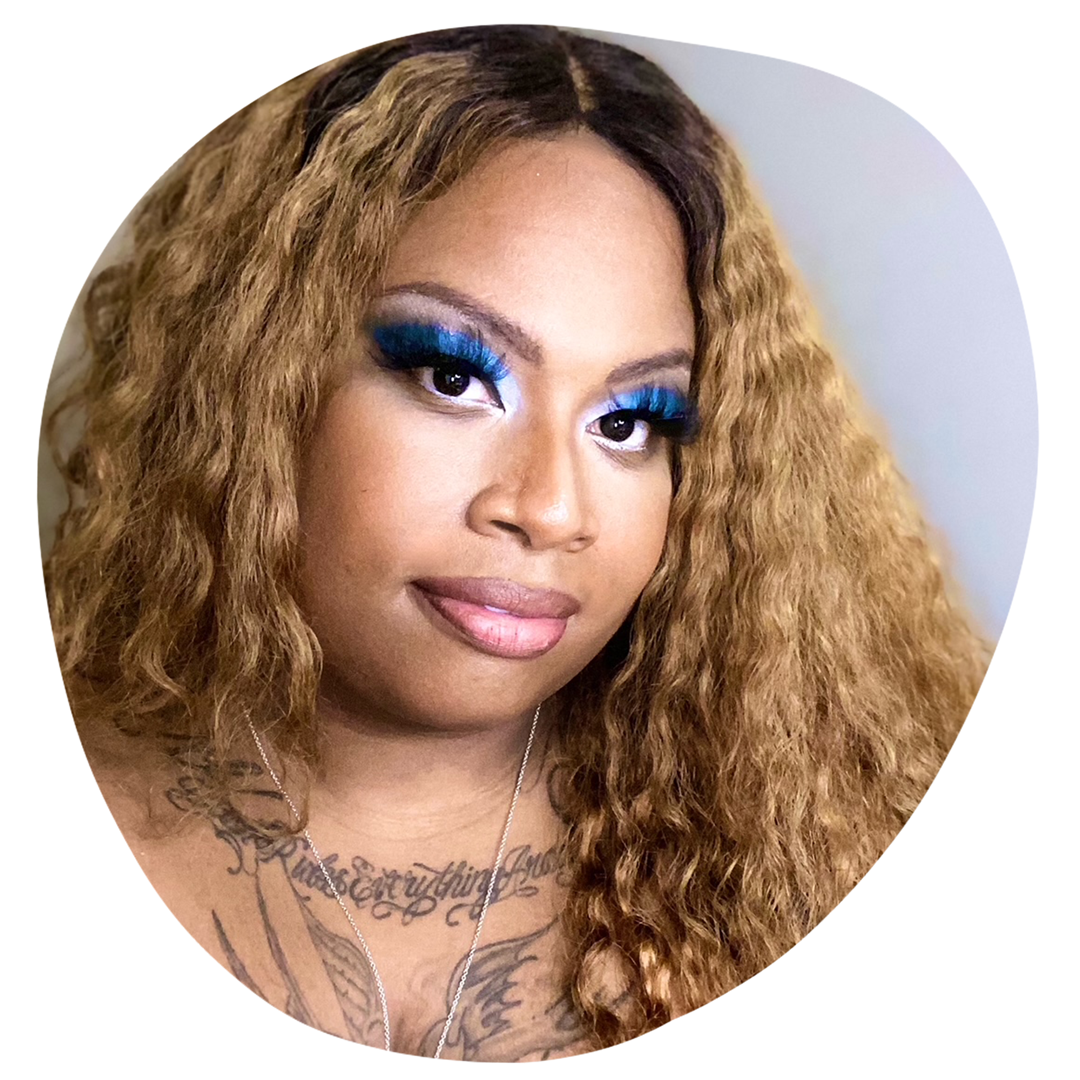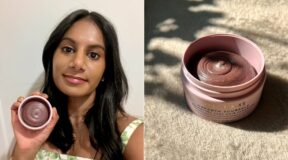“I refuse to accept genetics as an excuse for my weight,” I assured Dr. Russo. He was the first bariatric surgeon I’d consulted after the faulty gastric bypass I had four years prior. I couldn’t look him in the eyes without feeling like a failure. Instead, my eyes scanned the colorful “Smart Dimensions Weight Loss” literature along the eggshell-toned walls of his office. “Please be kinder to yourself,” he implored, drawing me from my disassociated daze. With the utmost compassion, he educated me on the fallacy of my declaration, explaining that genetic predispositions to illness are often triggered by obesity and that there are options available to avert risk.
My statement didn’t reflect sincere sentiment. I was merely regurgitating the pseudoscientific professional opinions I’d been told over the years. Talking points of the sort were often used to curmudgeonly chastise me over why my fatness was unacceptable and ultimately my fault. If I wasn’t able to count on the medical establishment for anything else, I could always count on its gatekeepers to legitimize my internalized fatphobia.
Disordered eating and diet culture have been a dominant presence in my life since the tender age of 11. Capitalism began marketing to my insecurities while I still had baby teeth. Television shows, movies, cartoons, and commercials painted a clear picture of what it meant to be or have enough—and I wasn’t it. Before puberty set in, my peers began forming cliques based on traits I didn’t measure up to. Like many of us, I learned to become a chameleon and assume whatever identity others needed me to be to earn their admiration. I could dress the part, become the expert on any subject matter, and even shrink my presence to appear nonthreatening—as to assimilate into whiteness with ease. (Yes, I was “the Black friend.”) But as resourceful as I was, there was nothing in my survival toolkit to camouflage my weight. No matter how much I tried, my attempts at achieving acceptance by altering my aesthetic always proved futile.
What would it be like to cease fire and embrace my body as ethereal—rather than as an enemy?
After my transition in 2004, the pressure intensified. Presenting female placed me under the microscope in ways I never knew were imaginable. Since I was tall (six foot two), I was expected to be thin and model-esque. My estrogen regimen and genetics had other plans for me. After a decade of battling post-transition and sobriety weight gain, I found myself at 478 pounds. Desperate for an intervention, I went to my former primary physician and inquired about bariatric surgery. Gastric bypass, anorexia, diet pills, and orthorexic eating patterns yielded a loss of 278 pounds. My inability to maintain such a rigorous routine gave way to exhaustion, and I was ready to give up trying to manage my weight. I’d started to learn more about body positivity (a.k.a. BoPo) and believed I may have a shot at true happiness that wasn’t contingent upon society’s opinions of my body. What would it be like to cease fire and embrace my body as ethereal—rather than as an enemy?
I called off my search for the elusive antidote that would cure my weight-based woes. Though my 2018 consultation with Dr. Russo was a positive one, I chose to embark on the journey that would ultimately heal my relationship with my body. Despite all the weight I’d previously lost, I still didn’t get the guy, the gig, or any of the glamor that thinness promised me as a rite of passage.
Even when I was showered with adulation, I still felt half empty. Consumed with imposter syndrome, I waited in angst for others to realize that I wasn’t worthy of their affection. That moment never arrived. Many of the special souls who embraced me recognized the beauty in my authenticity before I did. Over the past two years, I’ve also come to love that person as well.
It was truly a transformative experience: I was much more centered and purpose driven, and I embraced the elements of my identity that I spent most of my life working to suppress. But despite my newfound self-realization, challenges were still on the horizon. While enjoying decadent vegan cuisine from all over Los Angeles as part of a series I’m producing, I began experiencing excruciating pain associated with gastroesophageal reflux disease, which led to the emergency room. So much for my Eat, Pray, Love moment. The acid associated with GERD had been impacting my heart and exacerbating tooth decay, which explains why I’ve spent enough money on dental work to put a kid through college. Sleep apnea subtly slid into the chat, depriving me of quality rest, and my mental health began to decline. I was grieving 15 deaths (12 of them COVID-19 related), relationships started festering, and I fell into a depression and began compulsively eating to cope with my stressors. The continued weight gain limited my range of movement, caused my asthma to flare up, triggered inflammation, and caused chronic pain in my tailbone, making it difficult to sit for longer than 20 minutes without experiencing sharp discomfort. At 405 pounds, my life and my body were falling apart, and the unmanageability began to set in thick.
Acknowledging my weight as the root of my health crisis raised internal conflict. First of all, I didn’t want the assholes, Twitter trolls, and Jillian Michaels of the world to think their critiques on fat bodies had any influence on my decision to lose weight. But depriving myself of care to spite cyberbullies is like me drinking poison and waiting for them to die. If anything, trolls were the least of my worries. The main reason I felt reluctant to explore weight loss as an option is because I was afraid of losing community.
When it comes to the BoPo movement at large, the threat of being exiled to social Siberia for losing weight is real
Though I’ve never claimed to be an expert or spokeswoman on body positivity, I attribute much of my personal development to its teachings. Friends like Sonya Renee Taylor, Ericka Hart, Rachel Cargle, Jameela Jamil, Roxane Gay, and their work have truly enriched my life. But when it comes to the BoPo movement at large, the threat of being exiled to social Siberia for losing weight is real. This is especially the case for those of us who are Black. Some movements use their progressive veneer and diverse membership to deny embedded racism within their culture. That way, when Black women become the object of white ire for any given reason, they can treat us like punching bags without feeling racist. The tiniest offense and we’re forced to stand trial in the court of public opinion.
We all witnessed what went down recently in the case of Lizzo vs. BoPo, TikTok & Instagram (they chased her off Twitter a long time ago). Lizzo shared that she’d completed a 10-day smoothie cleanse intended to improve her mental health, sleeping habits, the condition of her skin, and other bodily benefits. Completely bypassing the mention of her need for mental care, droves of critics took to social media to lambaste her for allegedly promoting diet culture.
When did we start weaponizing body politics against those they were meant to protect? Whether Lizzo’s actions were informed by diet culture or not honestly doesn’t matter. Black women deserve the same gentle compassion and forgiveness others are afforded. Furthermore, there should be space to safely unlearn potentially harmful habits without being shamed more than we’ve already grown accustomed to. Shame is not an effective tool of transformation, and to be “woke” is to concede that all of us were “asleep” at some point. Shoving others out of safe spaces for not matching pace with our own personal development is rooted in supremacy. We can’t achieve a society free of body shaming, while body-shaming others for exercising agency. And at the end of the day, no one should be placing demands on bodies that don’t belong to them.
When did we start weaponizing body politics against those they were meant to protect?
To effectively combat body terrorism, we must adopt an intersectional framework for liberation that doesn’t further marginalize people who don’t fit into the binary container of what it means to be BoPo. One-size-fits-all definitions of body positivity are impractical, because neither our bodies nor experiences exist on a single axis. Even if my shape weren’t the source of stigma, my skin color and gender identity would still flag me for social annihilation. In fact, fatphobia in and of itself is a by-product of racism intended to forge the optics of supremacy by distinguishing white people from Black bodies. Therefore, imposing intrusive guidelines on fat, Black bodies is not only harmful, it can make the BoPo movement feel like just another incubator for supremacy to thrive in.
As an elder millennial (with a Gen-Z glow), I remember when body justice was solely about ending all forms of body terrorism. As discourse deepened and nuance flowed freely from the pens of writers, scholars, and academic stakeholders, we began learning the fundamentals of body liberation that made our lives feel bigger. But many of us became afraid to pose questions that beg nuance and ultimately strengthen our understanding of self and others.
Not all fat bodies are unhealthy, and not all thin bodies are healthy. Yet, few in the BoPo movement care to acknowledge fat bodies that ARE unhealthy and require weight loss for survival. Instead, some remain firm in their beliefs that all weight loss is toxic, branding those of us who don’t agree as persona non grata. This forces those who often experience multitiered marginalization to now choose between survival or having access to safe space.
When presented with those options, I chose survival. Albeit two years later, I circled around to Dr. Russo and on the morning of December 23, I had my gastric bypass revised and brought on a team of nutrition experts to help restore my body to health. We’re long overdue for an in-depth conversation on the validity of BoPo weight loss.
Weight loss isn’t always informed by diet culture and is only a pillar of what makes it harmful. Societal attitudes and social messaging intentionally shaping culture that deprives fat people of dignity, safety, access, opportunity, and social support is where the major harm lies. This is merely one of many nuances missing from the one-dimensional takes on body positivity I find floating through my feed daily.
It’s all about a person’s intention behind their weight loss and what they hope to gain. Personally, I don’t aspire to be thin, nor do I expect to be praised or celebrated, or to reap rewards unrelated to my health. I’m not even striving to meet an “ideal weight,” especially one that’s based on a racist BMI chart that was developed with only white bodies in mind. I will love my body at every size and will continue examining my relationship with diet culture every day, as I have over the last few years.
I’m confident in my decision to lose weight whether it qualifies as BoPo or not. I’m a Black trans woman, recovering addict (nearly nine years clean and sober), a formerly homeless survival sex worker, and survivor of physical violence and rape. The most radical expression of self-love I can embrace is to stay alive. If losing weight under the care of licensed professionals improves my heart, lungs, and digestive health; averts hereditary and trauma-related illnesses; elevates my mental health; and presents a broader pathway to healing, I owe that to myself. I won’t be made to feel like a traitor for trusting my body and my doctor over Twitter takes. And neither should you.
Source: Read Full Article







